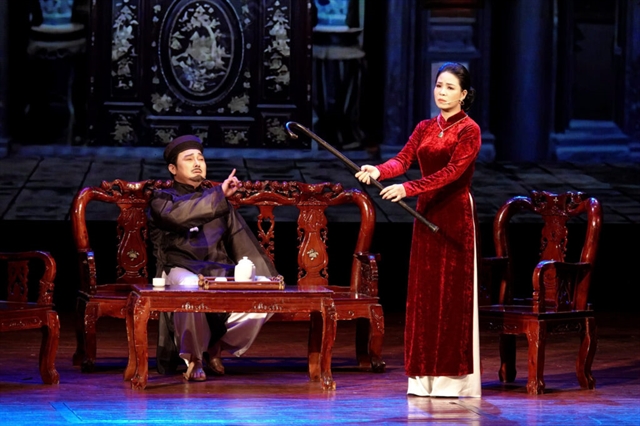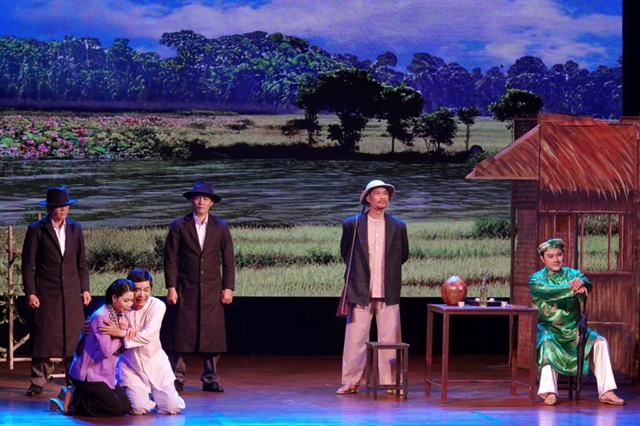A new version of a famous cải lương (reformed opera) play on Southern culture will be staged to celebrate the New Year in HCM City.

RISING STAR: Actress Kim Luận (right), one of young talents of Trần Hữu Trang Cải Lương Theatre in HCM City. She has worked to keep the south’s 100-year-old cải lương (reformed opera) alive. Photo courtesy of Trần Hữu Trang Cải Lương Theatre
HCM CITY A new version of a famous cải lương (reformed opera) play on Southern culture will be staged to celebrate the New Year in HCM City.
The play, called Đời Cô Lựu (Ms Lựu’s Life), features young artists of Trần Hữu Trang Cải Lương Theatre, a leading traditional art troupe in the city.
It tells the story of Lựu, a Vietnamese woman, and her challenges and suffering under the feudal society in the south.
Scriptwriter Trần Hữu Trang wrote the original version of play which was first staged in Sài Gòn (now HCM City) in the 1930s. The play was performed multiple times in the city and southern provinces.
In the new version, the play’s director, celebrated artist Hoa Hạ, uses elements of modern drama to attract young audiences.
Actress Kim Luận was chosen to play Lựu, and actors Nguyễn Văn Khởi and Minh Hoàng were also taken for starring roles.
“Young artists are working to refresh a famous cải lương play on Southern culture and lifestyle, using modern performance techniques. I hope their art will dazzle theatre lovers during the New Year break,” said Hạ.
According to Hạ, late playwright Trang was a pioneer to feature women as leading characters in cải lương. “Though Trang passed away, his plays are still alive among Vietnamese audiences, particularly southerners," she said.

CLASSIC CẢI LƯƠNG: Young artists from HCM City’s Trần Hữu Trang Cải Lương Theatre perform in 'Đời Cô Lựu' (Ms Lựu’s Life), a production that features Vietnamese women under the feudal society in the 1930s in south Việt Nam. Photo courtesy of Trần Hữu Trang Cải Lương Theatre
Trang was born in 1906 in Chợ Gạo in Mỹ Tho Province (now Tiền Giang).
He began his professional career in 1928, working for leading troupes in the south. In the 1930s, Trang released a series of plays, trying to express his new ideas on love, women, and family issues through his art.
After the August Revolution in 1945, Trang joined the resistance force against the French and worked in Sài Gòn.
He created more than 30 works and all feature Southern characteristics. Most of them have been recognised as canonical cải lương and have been staged many times at home and abroad.
He died in 1966. For his contributions, he was posthumously awarded the Hồ Chí Minh Prize for Arts and Letters by the Government in 1996. Trần Hữu Trang Theatre was named after him.
The first show of Đời Cô Lựu opened on Sunday, December 29 at 136Đ Trần Hưng Đạo Street, District 1. It will be performed on weekends in January and February. In Tết (Lunar New Year) week, which begins on January 28 this year, the show will be staged every night. VNS